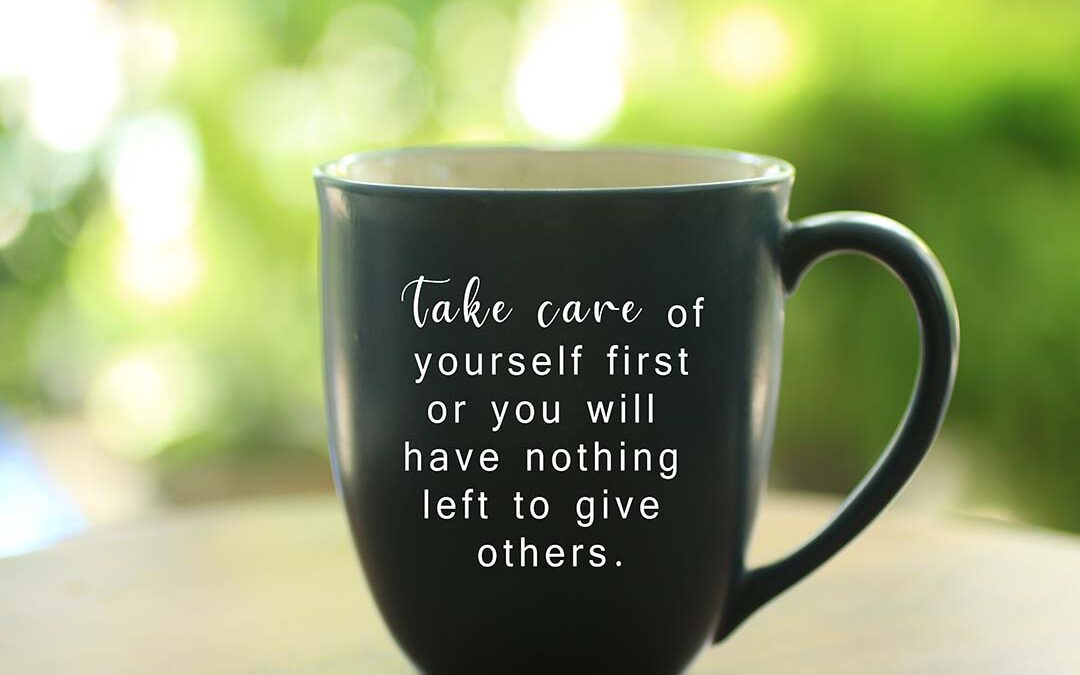Let’s imagine an average modern American mother named Liz. Liz is busy raising 2 children with her spouse and managing all the household’s affairs from groceries to the children’s homework to one child’s basketball practice to another child’s food allergies to everyone’s laundry. Or maybe Liz is busy working 3 part-time jobs to make ends meet in order to raise her 2 children on her own. No matter what Liz the average modern American mother is doing, odds are she feels FINE – Freaked out, Insecure, Neurotic, and Emotional. So, what can Liz do to feel fine instead of FINE? She reads articles and books and listens to podcasts about the importance of self-care, but she feels overwhelmed by all the information. Self-care only exists in Liz’s life as another chore at the bottom of Liz’s never-ending to-do list.
Instead of looking at self-care as another mountain to climb, I like to apply The 5 Prong Approach to demystify and deconstruct it into smaller, more manageable components: physical, spiritual, emotional, energy, and psychological. Keep in mind that everyone’s path to self-care looks different, but these are the important mile-markers on each path, and the goal of self-care cannot be reached if any of them is missing.
Physical
Physical self-care is easier said than done. No surprise here, Liz needs to eat well, sleep well, and exercise. If Liz is physically healthy, she will have more energy and patience to deal with everyday stress. So instead of staying up late to frost cupcakes made from scratch for the basketball team’s bake sale, maybe Liz can bake brownies from a box mix and sleep and/or exercise with that hour instead.
Spiritual
A common example of spiritual self-care is meditation and prayer. Hopefully, our average modern American mother can find a few moments throughout the day to relax and refocus using meditation and prayer. I must note that these methods take practice, and if Liz doesn’t “get it” on the first try, she should not give up.
Meditation and prayer are active methods of self-care, meaning Liz can practice them independently, but I also recommend adding passive approaches like reiki or Qi Gong to deepen spirituality and provide clarity and peace.
Hypnosis can also be a useful tool in the spiritual self-care box. This is NOT Liz staring at a pocket watch swinging in front of her face while I tell her she’s feeling very, very sleepy. Let me repeat, Liz will NOT be Elmer Fudd acting like a rabbit in a Looney Tunes cartoon. Hypnosis actually refers to a state of consciousness marked by increased openness, relaxation, and imagination, akin to daydreaming or “losing yourself” in a book or movie. Liz’s goal is to learn how to respond to and manage her stress, pain, and/or memory.
Emotional
The emotional component of self-care can be as simple as Liz doing something she enjoys every day, even if it’s just for a few minutes. I will go on record here saying that scrolling through Instagram or Facebook or TikTok for hours does not count as emotional self-care. In fact, research shows it’s more likely to increase Liz’s stress levels.
Better examples of emotional self-care for Liz include setting boundaries with her time and energy, like saying, “No thank you” to things that she doesn’t care for or that don’t make her happy, and delegating tasks to others whenever possible. Focusing on 3 concrete things she’s grateful for at the beginning and end of each day and writing her thoughts and feelings in a journal are also classic methods of emotional self-care.
Energy
The goal of energy self-care is to heal the body by activating and/or restoring its natural healing energies that have become weak or out of balance. A perfect example is Tapping Therapy, which uses acupressure points on the face, upper body, and hands to reduce anxiety, guilt, and frustration, among other negative emotions. Tapping Therapy is easy to learn, easy to practice, and fast – perfect for a busy mother like Liz.
Another easy and quick example of energy self-care for Liz is Bach Flower Remedies, a homeopathic remedy that uses the energy emitted by specific flowers to target certain symptoms. After a consultation with a certified practitioner, Liz can simply drink a few drops of her specific Bach Flower Remedy in water during the day to relax, revitalize, and refocus her energy.
Psychological
What I mean by psychological self-care is Liz talking to a trusted friend, mentor, or family member to share her feelings. This might take the form of venting her frustration with a child’s behavior, laughing about something funny she saw while driving, crying on a trusted shoulder after a long day, or asking for advice on a thorny issue.
However, if Liz is really struggling with her mental health, she needs to seek professional help. I do regular consultations with people who feel stressed and overwhelmed using the 5 Prong Approach to treat the whole person, not just the symptoms. The five areas are often intertwined, and they each need to be addressed together in order to overcome life’s challenges.
Mothers Need Self-Care
Self-care is an ongoing journey, and our average modern American mother Liz needs to be patient with herself. She needs to remember that she’s not alone, and there are many resources available to help her. My approach is one of many, and I encourage all the mothers to think outside the box of conventional methods of self-care to grow their physical, spiritual, emotional, energy, and psychological health.



